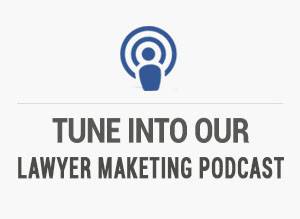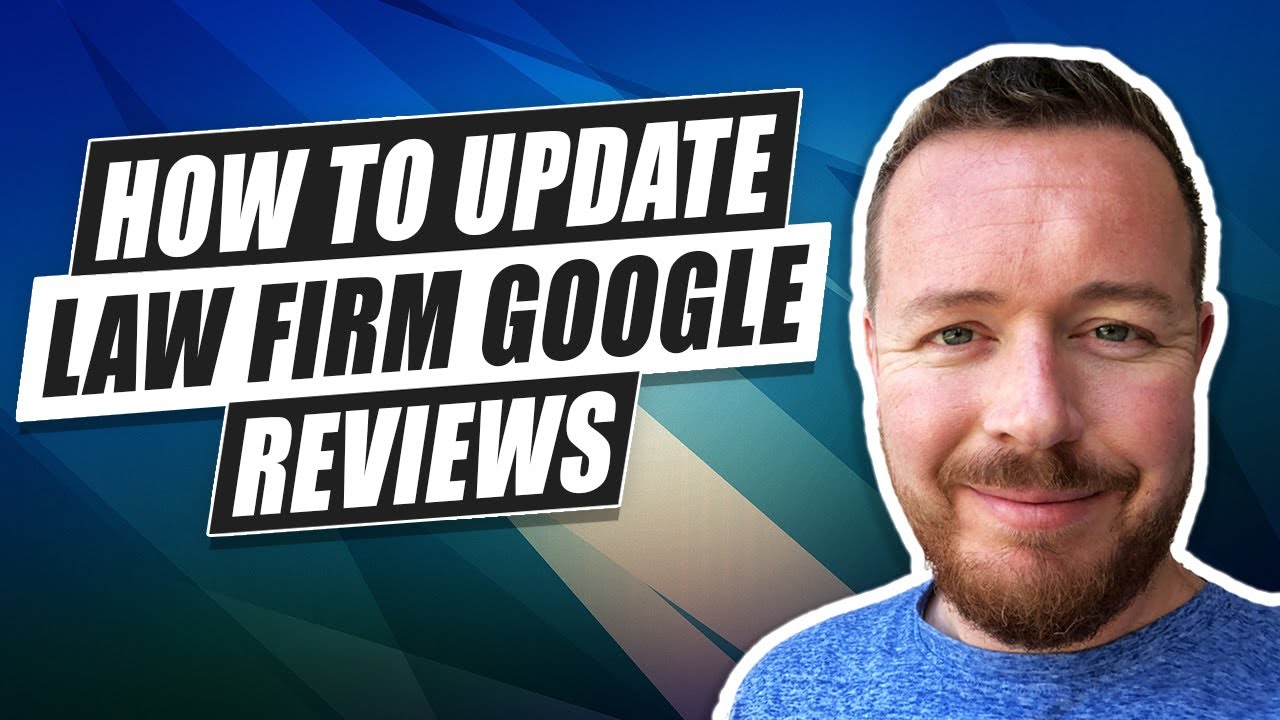Andy Stickel: Hey, everybody. Andy Stickel here. One of the biggest challenges in getting started with video is just getting comfortable talking to the camera and really finding your on screen personality. This is actually something that I see a lot of lawyers struggle with. I actually talked to our social media manager about the problem. His name is Chris Vander Kaay. I had him record a video for you guys that will show you three steps to finding your on screen personality and actually getting comfortable talking to the camera so that when you create videos it feels natural and it feels like you’re just having a conversation. You’ll get much better results as a result of your performance. And honestly, it’s really, really easy. Just follow the three tips that he lays out in this video. Let us know in the comments if you have any questions.
Chris Vander Kaay: Hey, everybody. It’s Chris Vander Kaay from Social Firestarter. I wanted to talk today about the idea of your on camera personality. The first question people always come to us with is, “Why do I have to be the face of my own campaign?” We have a different video to talk about that. But once they’ve gotten past that point and they’ve accepted that, the next question is usually, “What about my on camera personality? I don’t feel comfortable on camera. I don’t really like being on camera. I don’t think I’m good on camera. How do I fix that? How do I get better at that?” And Andy always says, “It takes time.” And that is true. It’s absolutely true. You’re going to have to work at it for a long time. But there are things that you can do that will help you to get better on camera. One thing I want to stress before we get to the three points, the three things that I think will help, is I want to point out a lot of people think that this is like acting, that this is performing. And I want to make it clear this isn’t really about acting. If you had to compare it to something, it’s not about being an actor, it’s more like being a host. You’re not not being yourself. You’re just being a slightly bigger version of yourself that’s slightly better at the thing you have to do here, which is to present information to someone in an interesting way. That’s not the same thing as acting. And we’ll talk about the ways in which it’s not the same. And I think the first one is actually really important. Be authentic. Right? Even with your errors and your imperfections and all the things that you feel are awkward in front of the camera, you have to be honest about those and you have to feel authentic in order for people to want to believe you. One of the reasons why we want lawyers to be their own face on the camera and we want them to be their personality is because if you’ve ever watched an ad where they use actors doing things, you recognize within yourself you immediately shut off. Right? Because I’m not seeing who this person really is. I’m not getting any genuine emotion. I’m not connecting in any way because I’m not even looking at the person that I’m going to be connecting with. You have to have that. You have to have that genuine connection. And even if you’re on camera and you’re the real person but you’re not being your genuine self, people will notice if you’re putting on some sort of an affectation. One of the things you notice about me I’m sure is that I talk very quickly. I have to accept that about myself, which is one of the reasons why I do a recap at the end of the points that I’ve covered because I talk fairly quickly and I want to make sure that they got the points. The second thing that I want to talk about is how to make it a conversation with just one person. I’m not talking to a thousand people right. When I’m looking at this camera and I’m talking, I’m talking to one person. I’ve chosen who that specific person in my life is that I feel comfortable having a natural conversation with. And once I know who that person is and I’m just talking to them and I can block out the idea that thousands of people might see this, it makes it a conversation instead of some sort of a presentation. I’m not acting. I’m just having a conversation. I’m providing one person that I know and I like and I’m comfortable with some sort of valuable information. And that really tends to take the fear off of it all, the expectation off of it all. And as you’ll notice, as we’ve been talking, I’ve been glancing at this card. I was doing that on purpose. I don’t normally use a card. When I do have it, I don’t normally look at it like this. But that’s point three. And I did that on purpose to show you how distracting it is if you’re trying to keep track of what it is that you’re saying, if you have a script. It’s very distracting if you try to write a script for yourself for two reasons. One, you’re either looking at it and then, even if I put it over here, when I’m looking over to see what it says, you can tell that I’m looking over to see what it says. And that’s distracting. The other thing is if I’m not looking over at it but I’m just reciting it to you because I memorized it earlier, I memorized it exactly like this and I will say it exactly like this, there’s nothing genuine to it because all I’m doing now is spitting words that I memorized back out at you. What you want to have is some sense of natural ideas. If you look at the card that I wrote, I wrote down at the bottom, “Don’t make a script. Just make notes.” I keep the notes around because I glance at them right before I record. But I’m not constantly consulting them. And therefore it’s coming off comfortable, extemporaneous in the same way that if you were just accessing information in your head when you’re having a conversation with somebody. That’s the feeling that you want to have when you’re on camera. You obviously want to provide good information but you don’t want it to become so important that that information is delivered exactly this way that you’ve lost all interest in who you are as a person and what you’re providing to another as a human being. Because otherwise I could just slap up words on a screen. Easy enough. Right? And you’d still have the information. You’re trying to make a human connection on top of providing that information. Those three points I’ll reiterate because, again, I have accepted the part about me that is a problem, which is that I speak quickly. The first point, be authentic. Even with your mistakes and with your problems, be authentic. Second point, make it a conversation with a single person. Figure out who that person is in your life that you know you could have any conversation about anything with and that you’re comfortable and you don’t have any nervousness speaking around them. And then that’s who you’re talking to. And then the third and final thing, don’t script anything out. Make your notes so that you know what you want to get at and then look at it right before and then just go ahead and record. And don’t worry about trying to land every specific phrase the way that you wrote it. Just be honest. Share the information that you have. Be genuine. And if you do that long enough, that will become the natural presence that you have on camera. And your on screen personality will shape itself once you do those things.








